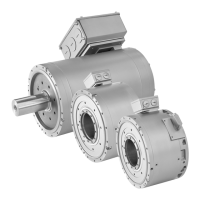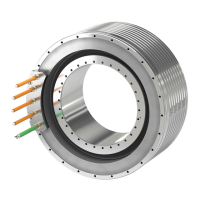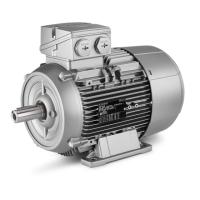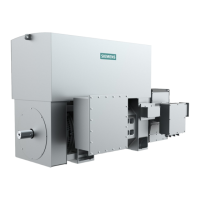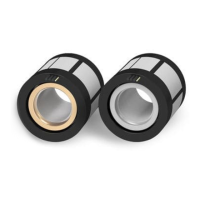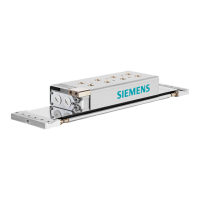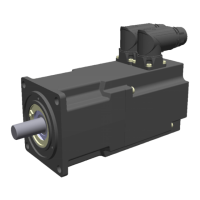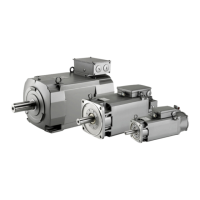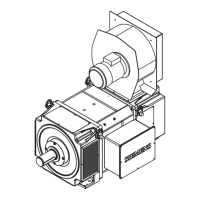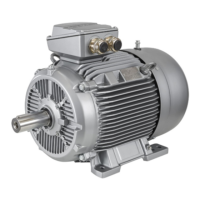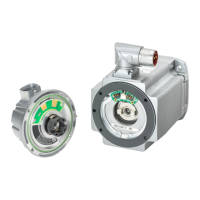3. Fasten the cable lug to the end of the conductor correctly, e.g. by squeezing.
Figure 6-3 Connection with cable lug and fixing screw (schematic diagram)
4. Insulate the cable lug sleeves where necessary to ensure minimum air clearances and the
creepage distance are maintained.
5. Place the cable lug on the terminal support. If you are using a disconnecting link, check its
positioning.
For terminal boxes 1XB7740 and 1XB7750, place the cable lug on the busbar.
6. Tighten the fixing element ② with the corresponding tightening torque:
Fixing element Tightening torque
Fastening screw M12 20 Nm
Fixing screws M16 40 Nm
Fixing nuts M12 20 Nm
6.4.4 Use of aluminum conductors
If you are using aluminum conductors, then comply with the following:
● Use only cable lugs that are suitable for connecting aluminum conductors.
● Immediately before inserting the aluminum conductor, remove the oxide layer from the
contact areas on the conductor and/or the mating piece. Do this using a brush or file.
● Then grease the contact areas immediately using neutral Vaseline. This prevents a new
oxide layer from forming.
NOTICE
Aluminum flow due to contact pressure
Aluminum flows following installation due to the contact pressure. The connection using
clamping nuts can loosen as a result. The contact resistance increases, obstructing the
current from being conducted. This can result in fire and material damage to the machine
– or even in total failure, as well as material damage to the plant or system due to machine
failure.
● Retighten the clamping nuts after approximately 24 hours and then again after
approximately four weeks. Make sure that the terminals are de-energized before you
tighten the nuts.
Electrical connection
6.4 Introducing and routing the cables
SIMOTICS TN Series N-compact 1LH8
Operating Instructions 06/2017 69

